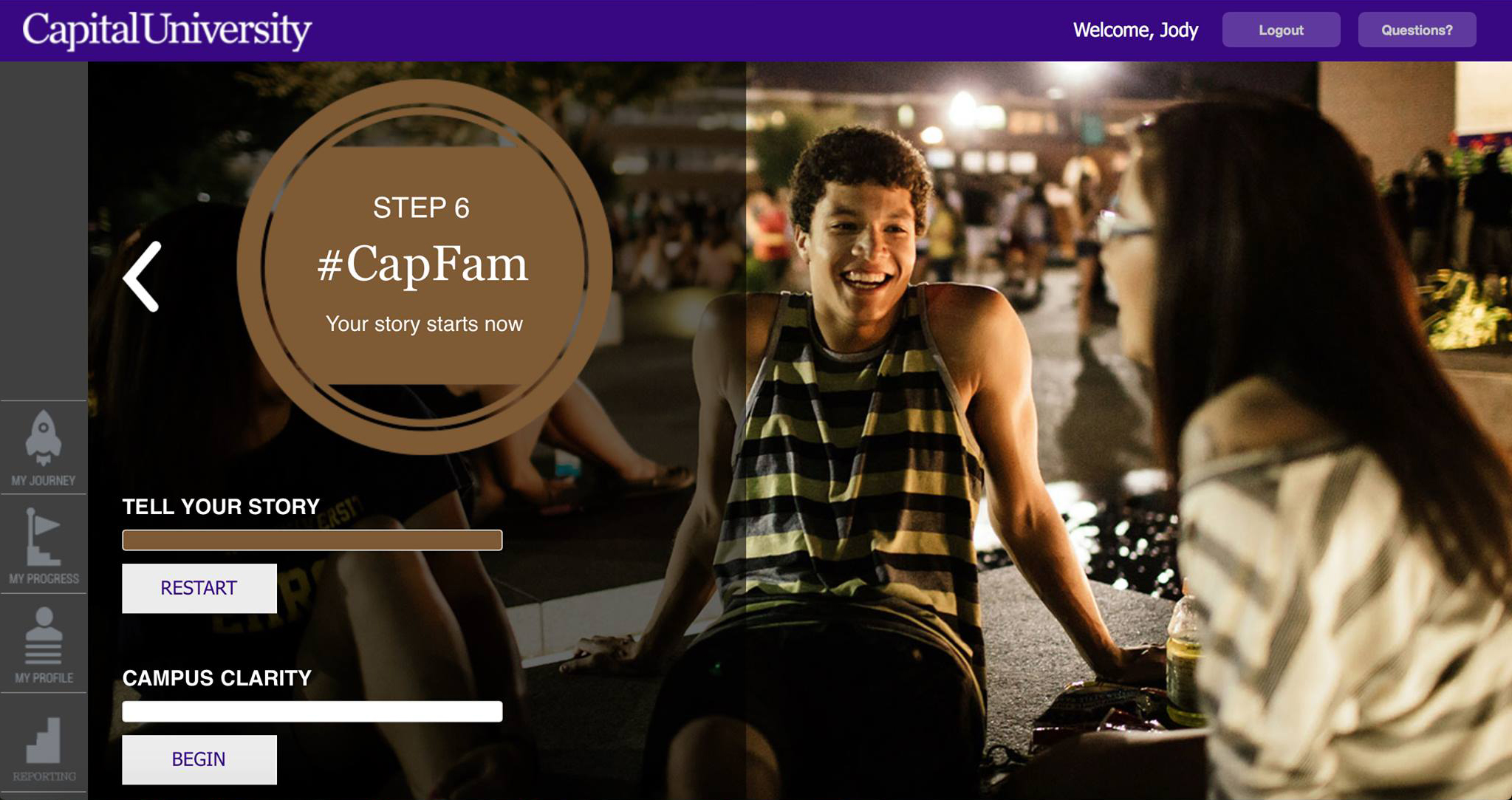During the summer of 2015, incoming first year students at Capital University were introduced to an online course called Cap 101, which has been designed to make the transition to college life smoother.
Cap 101 is a six step experience that was designed to “help get [first year students] the tools they need to start off at the University with the highest likelihood of success,” says Assistant Provost Jody Fournier, PhD. The program ran during July, with students completing the steps within four weeks.
First, students completed a step on engagement, in which they learned about the different offices that deal with involvement on and off campus. Some of the offices covered were the Office of Student Community and Engagement, the Office of Diversity and Inclusion, study abroad, and residential and commuter life.
Then, physical, spiritual, and mental wellness was covered. The second step also included programs regarding financial wellness, intermural sports, and athletics.
The third step, Academics, allowed students to complete the Educational Testing Services proficiency profile, which has previously been a written test during orientation weekend in the fall. By having the students take the test in the summer, it allowed for a better sense of placement in courses for the fall semester.
In the fourth step, the Success step, the course introduces the Blackmore Library and its services, and Academic Success peer tutoring, and academic coaching. There is also a section on making the transition to college life in which returning students voice the concerns they had when beginning school and provide answers to those questions.
The fifth step is Vocation, which teaches first year students about internships, job placement, and career opportunities by introducing them to the Career Development office and the Compass Leaders. “We needed to address students’ purpose of higher education in their lives earlier in their academic career,” says Fournier, as opposed to past years where those topics may not have been covered until the third or fourth year at Capital.
Lastly, Cap 101 covers #CapFam. This section builds on the unified theme, Tell Your Story, inspired by the book “Listening is an Act of Love” by Dave Isay, that all first year students were asked to read.
Most of the modules begin with a video and follow with a variety of activities, quizzes, and exercises. At the end, each module offers the opportunity for students to provide feedback on what they have just learned and ways that the program can be improved.
“I don’t think it should be mandatory, especially since most students have been to campus several times and know most of the information,” says first year student Allison Hazel. “We even relearned the information during orientation weekend and during the University Core classes.”
Fournier and the rest team that has created the program has already recognized some changes that need to be made to the program. Next year, the program will be used not only by incoming first year, first time students who deposited around May 1, but also will be available to transfer students and those who deposited later in the summer. Also, instead of starting the program in July, the goal is to begin the program as soon as the incoming student deposits his or her money to reserve their place at the university.
“As a transfer student, it was very time consuming to try to learn the necessary information because I had other occupations during that time to prepare to come to campus,” says Grant Kendricks, a transfer student from Oakland Community College in Auburn Hills, Michigan. “For a student that has never been to college before, it could be very beneficial, but as a person who has already gone through that process at another college, it seems redundant.”
In the coming years, the university also plans to centralize all of the information needed from students. Instead of receiving several different emails from across campus, such as emergency contact forms, math placement exams, immunization forms, and language proficiency tests, all of the needed forms and exams will be available in Cap 101.
This program is one of the 146 action items that resulted from Foundations of Excellence, a self-study that Capital University participated in several years ago regarding the treatment of incoming students.
“[In the study], what we found was, while we were doing a lot of things well, we also found that there were a lot of redundancies—we had multiple programs competing with each other on campus, so we streamlined in many areas. Another thing we did is that we found that some things we were doing we just needed to rethink and rebuild from the ground up. Cap 101 falls in the category of things that we weren’t doing and that we needed to do,” says Fournier.
Another major change that resulted from the study was the inclusion of First Year Seminars, a UC-100 course that began in the fall semester of 2014.
Unlike other universities that spend most of the semester in first year seminars introducing students to different offices and services on campus, the introduction of Cap 101 has allowed the First Year Seminar classes to become more general education, critical thinking, and visual literacy based.
The entire program was made at Capital by the electronic media & film program and Information Technology.
“I’m so proud of all of the team that worked on this, it’s been just fantastic,” says Fournier. “There’s been many different offices and individuals involved… it’s pretty cool.”
Although there will be changes made to the program, Cap 101 will be continued next year for first year students and transfer students.

